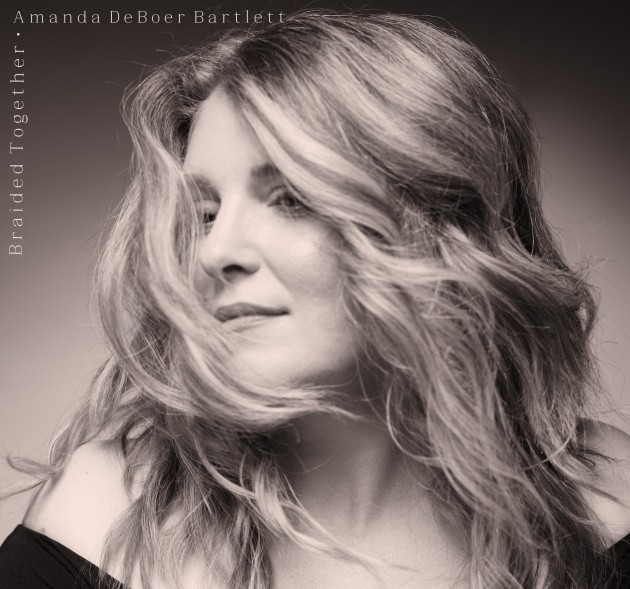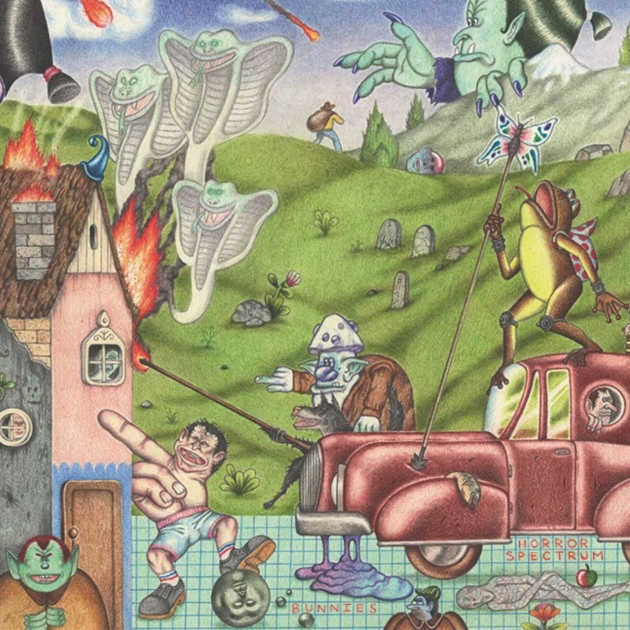Ruination Record Co. Announces Scree's Mini-Album 'Live at the Owl Music Parlor Volume Two'

On their 2023 studio debut Jasmine on a Night in July, the Brooklyn-based experimental trio Scree announced themselves with an affecting suite of progressive jazz, channeling the sweeping sense of catharsis of an orchestral tone poem. The group augmented their improvisation-heavy performances with organs and synthesizers that often provide the gravitas of a symphonic string or brass section. As a counterpoint to Jasmine’s widescreen vision, the group decided that their next release should highlight the group—consisting of guitarist/composer Ryan El-Solh, upright bassist Carmen Quill, and drummer Jason Burger—at its most elemental. Recorded at the site of their first release (2019’s Live At the Owl), this year’s Live at the Owl Music Parlor Volume Two is a moving testament to the band’s evolution during its near-decade tenure in New York City, immortalizing a strain of their personality that any studio recording would inevitably fall short of distilling. Here, the band hits their highest emotional peaks on record. In their ecstatic formal arcs and sense of yearning and restlessness, these songs evoke the experience of refocusing and staying in the moment while searching for hope and purpose in a grim world.
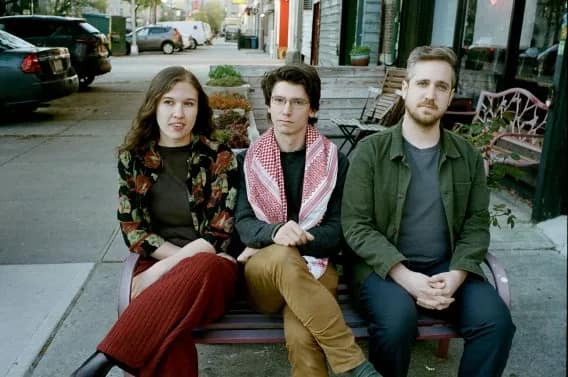
The independently-run venue The Owl Music Parlor, a small seated room in the Prospect Lefferts Garden district of Brooklyn, has been the home base for Scree’s performances since the group’s inception. The original Live at the Owl documents a band in the midst of cementing a shared language, synthesizing an indie-rock-inflected vocabulary with more quintessentially jazz-like diversions. By now, Scree presents their regular shows at the venue like fresh new stage productions. Often, they perform there in expanded lineups, premiering unified collections of new material that come from divergent corners of El-Solh’s musical mind. It is safe to say that numerous Scree projects of the past several years would have never been undertaken had there not been a reliable home for the group’s ideas—rare in a challenging moment for small music venues.
Excerpted from two sets on January 6, 2024, Live at the Owl Muisc Parlor Volume Two is the Scree that one can only see at The Owl on full, unmitigated display. Showcasing a broader spectrum of expressivity than any previous Scree release, the album features varied repertoire, including decade-old themes (“Being Realistic”) and playful brand-new experiments (“Chestnut” or “Wintry Mix,” the latter written at sound check). If one recording was selected to showcase the band at their most technically dazzling, it might be “Exclamation Point,” one of El-Solh’s most recent compositions of the set. Its chromatic lead melody bunches up like an accordion and trips over itself, evoking frustration with the empty performances of daily life. (“Why does every third sentence of an email have to end with an exclamation point?” El-Solh asks.) The tension of the opening melody is released with the rolled open chord that kicks off the solo section, suggesting resignation that feels, for the moment, like peace. From there, El-Solh follows a jagged point of melodic inspiration, trusting that harmony will take shape around it in Quill’s bass playing. Burger’s drumming underscores and gives shape to their trains of thought. (El-Solh cites the interrelationship of Keith Jarrett’s work with Charlie Haden and Paul Motian as a point of inspiration.) At moments like this, there is an exhilarating sense of free fall, more unfettered and daring than anything on Scree’s previous releases.
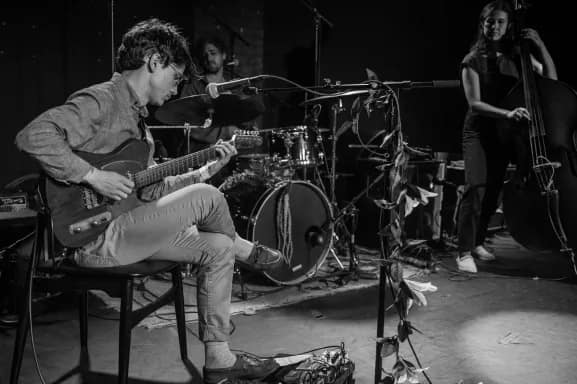
The major showpiece of the set—the breathtaking nine-minute “Nocturne with Fire”—builds toward a similar level of ferocity, but gives it a richer dramatic context. Like a number of the songs on the record, “Nocturne” opens with a drone-like exposition that allows El-Solh, as he puts it, time to “settle in.” Emerging after four minutes of solo guitar rumination, the song’s central, modal-bluesy chord progression throws things into soft focus, evoking the nighttime mise-en-scene implied by the title. “Nocturne” takes formal cues from the most fervent performances of John Coltrane’s classic quartet (see “Crescent” or “Spiritual”). After the band moves patiently through the rubato introduction and composed material, they drift into a subtly shifting groove section that allows El-Solh to recast the song in the image of the moment. In the take included on the album—played toward the end of night—he turns in his most devastating and expressive playing on record, circling around fractured motifs and clustered voicings. Quill floats across the barline, responding to El-Solh’s deft real-time melodic creation, while Burger builds toward a thunderous peak, laying down a fill that sounds like backfiring ammunition. This is the signal that the ceiling has been reached; the band dies down, uneasily riding out on the furtive central riff, fully exorcized. These details of Scree’s journey into and out of the depths of turmoil embody the essential qualities that make them such an inimitable ensemble.
In many ways, though, the more understated “Four Waltzes” functions as the emotional and ideological centerpiece of the set, despite being something of a stylistic outlier. Inspired by classical works like Brahms’s piano Intermezzos, El-Solh set out to write a piece with elaborately modulating variations that start and end in the same place. The central theme represents the immediacy and stability of the present moment, while the middle of each waltz takes place somewhere in the past—each finding the narrator processing a different event, or offering different interpretations of the same scene. Ultimately, the main motif functions like a mantra in meditation––a focal point that the protagonist drifts back toward as their thoughts wander toward far-flung places, both welcoming and unwelcoming.
“Four Waltzes” maps onto specific difficult events in El-Solh’s life, but was designed as an open framework through which many potential memories and associations can pass, This is broadly true of the material on this release: the songs are written to mean something very different every time they are played, well-suited toward the needs of musicians navigating an unsettled, constantly changing world. The music—and indeed, every element of the creative process behind it and the circumstances of its performance—emphasizes open-endedness, making space for the depth of reflection that can be accessed through adhering to familiar practices (the conscientious easing-in in the songs’ opening sections, the sense of recapitulation and resettling in their closing moments). The performances feel almost devotional in this sense, embodying a perpetual search to stay in touch with some deeper essence or governing principle beyond the everyday distractions—to find a bulwark in the proverbial storm. The performances captured on Live at the Owl Music Parlor Volume Two often evoke conflict and tumult, but the trio’s close listening and mutual adaptation always guides them back toward where they began—to something that feels like a spiritual center of gravity.
Brooklyn-based experimental, progressive jazz trio Scree, channeling the sweeping sense of catharsis of an orchestral tone poem.
Scree:
guitarist/composer Ryan El-Solh
bassist Carmen Quill
drummer Jason Burger

Clandestine was founded in 2010 by the owners of Northern Spy Records to help like-minded labels and artists release and promote their music. Today, we’ve expanded to include a team of project managers, sales experts, manufacturing specialists, and publicists who bring decades of music and label experience to bear for our clients. We specialize in the marketing and distribution of experimental and adventurous music and, in the last fourteen years, have helped release over one thousand albums.

Heading 1
Heading 2
Heading 3
Heading 4
Heading 5
Heading 6
Lorem ipsum dolor sit amet, consectetur adipiscing elit, sed do eiusmod tempor incididunt ut labore et dolore magna aliqua. Ut enim ad minim veniam, quis nostrud exercitation ullamco laboris nisi ut aliquip ex ea commodo consequat. Duis aute irure dolor in reprehenderit in voluptate velit esse cillum dolore eu fugiat nulla pariatur.
Block quote
Ordered list
- Item 1
- Item 2
- Item 3
Unordered list
- Item A
- Item B
- Item C
Bold text
Emphasis
Superscript
Subscript

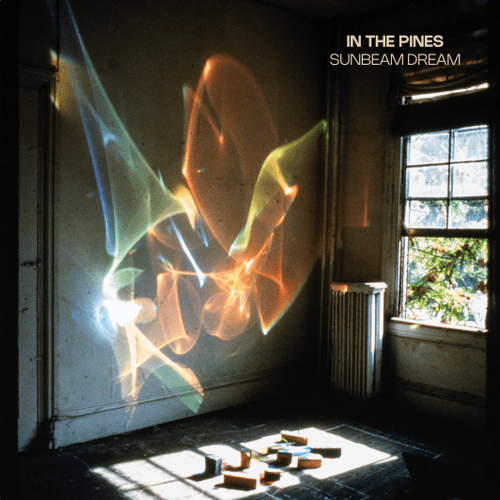
%252520-%252520kei%252520-%252520single-cover-art-p-800.jpeg&w=800)
